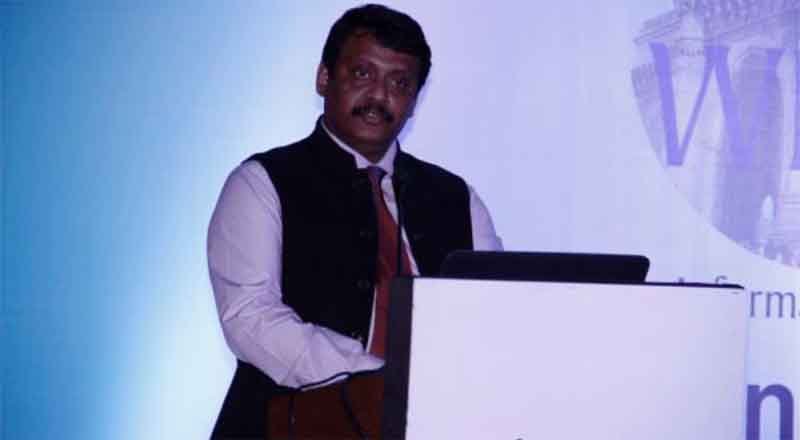
Bombay High Court Overturns 2006 Blast Convictions, Citing Lack of Proof
On the evening of July 11, 2006, lifeline — its suburban railway network — became the target of one of India’s deadliest terror attacks. Within just 11 minutes, seven synchronized bomb blasts ripped through first-class compartments of the Western Railway trains during rush hour. The carnage was catastrophic: 189 people killed and 824 injured. Fear and chaos gripped the city, as commuters, many returning from work, became unwitting victims of an act intended to paralyze India's financial capital.
In the aftermath, the Maharashtra Anti-Terrorism Squad (ATS) launched an extensive investigation. Thirteen men were arrested, twelve of whom would later be convicted by a special court under the stringent Maharashtra Control of Organised Crime Act (MCOCA) in 2015. Five were sentenced to death; seven received life terms. Their fate, however, took a dramatic turn nearly two decades later.
Bombay High Court Reverses Course
On July 15, 2024, a special bench of the Bombay High Court comprising Justices Anil S. Kilor and Shyam C. Chandak acquitted all 12 accused. The court set aside the convictions and corresponding sentences — including the five death penalties — and refused to uphold the Maharashtra Government's plea seeking confirmation of these punishments.
In a strongly worded judgment, the bench questioned the credibility of key prosecution witnesses and the legality of identification procedures, including the Test Identification Parades (TIP). “The prosecution utterly failed to establish the offences beyond a reasonable doubt,” the court concluded. Consequently, it ordered the release of all the acquitted individuals, provided they weren’t implicated in any other cases, and directed each to execute a personal bond of ₹25,000.
Inside the Courtroom: A Battle of Legal Narratives
The case was one of the most complex and voluminous in the country’s legal history. With over 250 witnesses (92 for the prosecution), 169 volumes of evidence, and a trial court judgment running close to 2,000 pages, it symbolized the enormity of the state’s attempt to deliver justice.
However, the High Court found serious flaws in how the case was prosecuted. Defence counsels — including notable legal minds such as S. Muralidhar, Nitya Ramakrishnan, and Yug Mohit Chaudhry — argued that the alleged confessional statements were extracted under duress and torture by the ATS. These, they contended, were inadmissible as per Indian legal standards.
The defence also highlighted that no credible forensic or eyewitness evidence placed the accused at the scene of the crime. Instead, the prosecution had relied heavily on circumstantial claims and confessions — many retracted later — to secure convictions. Most damning, perhaps, was the court’s conclusion that identification procedures were deeply compromised, thus making the convictions unsafe.
Lives in Limbo: The Cost of a Wrongful Conviction
For the acquitted, the judgment marked a bitter victory. These men — from different parts of India including Bihar, Maharashtra, and Telangana — had spent over 18 years in incarceration. One of the five men originally sentenced to death died in prison during the COVID-19 pandemic. Another, Wahid Shaikh, had been acquitted earlier by the trial court but had already served nine years in jail before being released.
Their advocates argued that not only were these individuals denied justice, but their families also bore the weight of societal stigma, financial ruin, and emotional trauma. “Their prime years were stolen. They lived through torture, isolation, and a justice system that failed them for nearly two decades,” said one defence lawyer following the verdict.
State's Case Unravels: Maharashtra Government’s Arguments Rejected
The Maharashtra Government, through Special Public Prosecutor Raja Thakare, had urged the High Court to confirm the death penalties, insisting the case fit the “rarest of rare” criteria. They cited extensive investigative work, claiming that the evidence overwhelmingly pointed to a well-orchestrated terror conspiracy.
However, the court disagreed. It found serious inconsistencies and procedural lapses in the state's handling of the investigation and prosecution. Most crucially, it reaffirmed a foundational principle of criminal law: guilt must be proven beyond reasonable doubt. In this case, that threshold was not met.
Implications: What the Verdict Means for India’s Justice System
The Bombay High Court's ruling raises critical questions about investigative integrity, the burden of proof in terror cases, and the application of extreme penalties like the death sentence. While national security concerns often amplify pressure on law enforcement, this case underscores the dangers of trading judicial fairness for quick convictions.
The judgment also throws a spotlight on laws like MCOCA and UAPA, which have been criticized for enabling coercive practices and eroding due process. With international human rights advocates increasingly scrutinizing such laws, this verdict may invigorate calls for legal reform and greater accountability.
A Wound Reopened, a Lesson Reinforced
The 2006 Mumbai train blasts will forever remain etched in the city's collective memory — a day when the heartbeat of Mumbai was brutally interrupted. Justice for the victims remains a moral and legal imperative. But as this ruling reveal, ensuring justice cannot come at the cost of fairness, evidence, and constitutional rights.
The acquittal of all 12 accused serves not only as a relief for those wrongfully imprisoned but also as a sobering reminder of the fallibility of even the most determined investigations. In its pursuit of retribution, the state must remain anchored to the principles of justice — for the innocent and the aggrieved alike.









